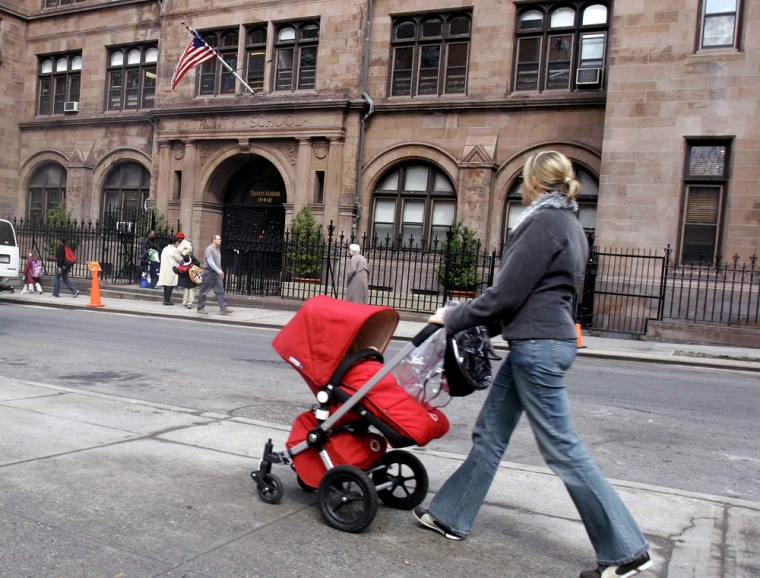Harvard is great, but it’s no Riverdale Country School.
The Bronx private school will charge tuition of $31,200 next school year for sixth- through 12th-graders, more than $3,300 higher than this year’s rate at the esteemed university. Bus rides not included.
Riverdale is among several elite New York City high schools that have surpassed or are approaching the $30,000 mark. But if anyone thinks a “tuition bubble” is about to burst, experts say think again.
“By the year 2015, these schools will be $50,000, and they would still have wait lists,” said Amanda Uhry, head of Manhattan Private School Advisors, who credited the demand for private schools to failing public schools. “It’s like a feeding frenzy around here.”
Dozens of people are often on waiting lists to get into the schools, even as prices rise.
Manhattan’s Trinity School will soon charge $30,170 for seniors, private school observers say. And plenty of schools are just a hair under the $30,000 threshold. The Horace Mann School in the Bronx, for instance, will charge about $29,000 for the 2006-07 school year.
Top-notch reputations
The elite schools are so sought-after because they boast small classes and top-notch teachers, not to mention high-quality facilities, especially for athletics. But perhaps more than anything, the most elite offer their reputations, something that could give an edge to students applying to top-tier colleges.
“Tuition, however high or low it may be, or whatever it is, it still costs us more than that to educate a student,” said Mary Ludemann, a spokeswoman for Riverdale. “We are trying to raise faculty salaries, teachers’ salaries. The only way to do that is to raise tuition.”
In many ways, the higher tuition bills are not a surprise. New York is by far the most expensive place in the country to send a child to private school — driven by the high cost of living in a city where apartments routinely sell for $1 million and it can cost a small fortune just to park your car.
The median 12th-grade tuition in Manhattan independent schools — a group not including parochial schools — was $27,200 in 2005-06; nationwide it was $16,970, according to the National Association of Independent Schools.
“New York is the only region of the country where there are numerous schools in that price bracket — close to $30,000,” said Myra McGovern, a spokeswoman for the association.
$24,500 for preschool
And it’s not just high schools with large tuitions. At Riverdale, preschool tuition cost $24,500 for the current school year, while kindergarten through fifth grade is $27,150.
While the cost of living in New York is a big reason for the jump in tuition, some schools are offering more specialized programs and classes that also drive the cost of instruction up.
Schools define tuition in different ways. Some do not include bus transportation; others charge extra for things like books and activities.
Victoria Goldman, a parent of a child currently at Riverdale and author of a leading guide to New York private schools, said the schools are attractive to even financially stretched parents.
“The level of education at these schools is so fabulous — the facilities are incredible,” she said.
McGovern said parents feel it’s worth the cost.
“It’s investing in their children’s lives,” she said. “Many people are willing to spend that much on a car. This for most parents, parents who send their children to independent schools, pays dividends for a lifetime.”
